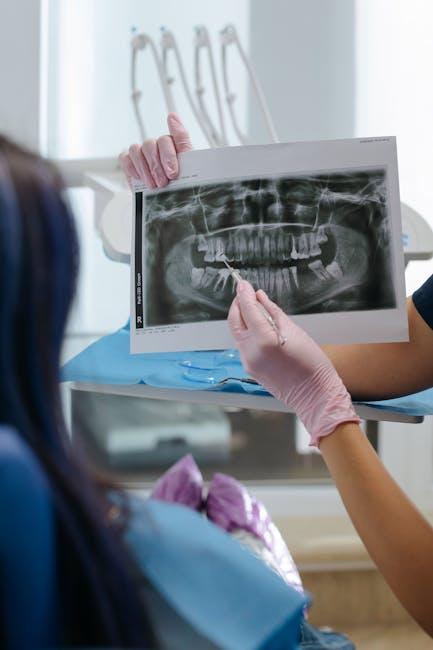
Poor Oral Health Linked to Greater Severity of Peritonsillar and Cervical Infections: Study Shows
Oral health is often overlooked as a critical factor affecting overall well-being, but recent research reveals a compelling link between poor oral hygiene and the severity of peritonsillar and cervical infections. These infections, which can lead to serious complications if untreated, are more common and more severe in individuals with poor dental care. In this article, we delve into the findings of a groundbreaking study reported by Medical Dialogues, explore how oral health impacts throat and neck infections, and discuss practical strategies to improve oral hygiene for better health outcomes.
Understanding Peritonsillar and Cervical Infections
Before examining the connection with oral health, it’s important to understand the nature of these infections:
- Peritonsillar Infections: These occur near the tonsils, often as a complication of tonsillitis, causing painful abscesses known as peritonsillar abscesses. Symptoms include severe throat pain, difficulty swallowing, fever, and swollen lymph nodes.
- Cervical Infections: These involve infections of the tissues and lymph nodes in the neck region, potentially spreading to deeper layers and leading to conditions such as cervical lymphadenitis or deep neck space infections.
Key Findings of the Study
A recent clinical investigation analyzed patient data to find correlations between oral health status and infection severity. The study, reported on Medical Dialogues, highlighted the following essential points:
| Aspect | Observation |
|---|---|
| Poor Oral Hygiene Prevalence | Significantly higher among patients with severe peritonsillar and cervical infections |
| Infection Severity | Worse symptoms and more complications linked to inadequate dental care |
| Common Bacteria | Oral pathogens like Streptococcus species frequently involved |
| Hospitalization Duration | Longer stays correlated with poor oral health status |
| Preventive Potential | Good oral hygiene linked to milder symptoms and faster recovery |
How Poor Oral Health Facilitates Infection Severity
There are several biological mechanisms by which poor oral hygiene can exacerbate or contribute to peritonsillar and cervical infections:
- Bacterial Overgrowth: Dental plaque, gingivitis, and untreated cavities create breeding grounds for harmful bacteria that can migrate to the tonsils and cervical tissues.
- Immune Response Impairment: Chronic oral infections may impair local immune defenses, weakening the body’s ability to fight off pathogens effectively.
- Inflammation Spread: Inflammation originating from the oral cavity can easily spread to adjacent regions such as the throat and neck, increasing infection severity.
- Abscess Formation: Oral bacteria can induce abscesses in the peritonsillar space, causing pain, swelling, and airway obstruction risks.
Symptoms to Watch For
Individuals with poor oral hygiene should be particularly alert to early signs of peritonsillar or cervical infection:
- Severe unilateral throat pain or difficulty swallowing
- Swelling or tenderness on one side of the throat or neck
- Fever and chills
- Ear pain on the affected side
- Swollen lymph nodes in the neck
- Difficulty opening the mouth (trismus)
Benefits of Maintaining Good Oral Health
Prioritizing oral hygiene has benefits not only for dental well-being but also for reducing the risk and severity of infections in the throat and neck:
- Reduces bacterial load in the mouth, limiting spread to adjacent tissues.
- Enhances overall immune function by reducing chronic oral inflammation.
- Improves treatment outcomes and reduces the need for hospitalization.
- Prevents complications, including airway obstruction and systemic infection.
Practical Tips for Improving Oral Health and Preventing Infections
Improving oral hygiene is simple and effective with consistent habits. Here are essential steps:
- Brush Twice Daily: Use fluoride toothpaste and a soft-bristled toothbrush to clean all surfaces of teeth and gums.
- Floss Daily: Removing plaque between teeth prevents bacterial accumulation.
- Use Antimicrobial Mouthwash: An antiseptic rinse can reduce oral bacteria.
- Regular Dental Checkups: Visit your dentist at least twice a year for cleaning and early problem detection.
- Avoid Tobacco and Excessive Alcohol: These aggravate oral tissues and increase infection risk.
- Stay Hydrated and Maintain Balanced Diet: Supports saliva production and oral tissue health.
Case Study: Improved Outcomes After Oral Hygiene Intervention
Medical Dialogues highlighted a case where a 42-year-old male with recurrent peritonsillar abscesses and poor oral health underwent intensive dental care. After a tailored oral hygiene regimen and dental treatment including cavity restorations and professional cleaning, the patient’s infection severity notably decreased with subsequent episodes, and hospitalization was avoided altogether.
Conclusion
The connection between poor oral health and the severity of peritonsillar and cervical infections is now clear through recent studies. Maintaining good oral hygiene is a vital, yet often underappreciated, component of preventing these potentially dangerous infections. Medical professionals and patients must collaborate to improve dental care practices, thereby reducing infection risks, hospitalizations, and complications. Regular dental visits, daily cleaning habits, and awareness of infection symptoms will empower individuals to protect their oral cavity and overall health.
Stay proactive about your oral health—it’s not just about your smile, but your throat and neck health too!


